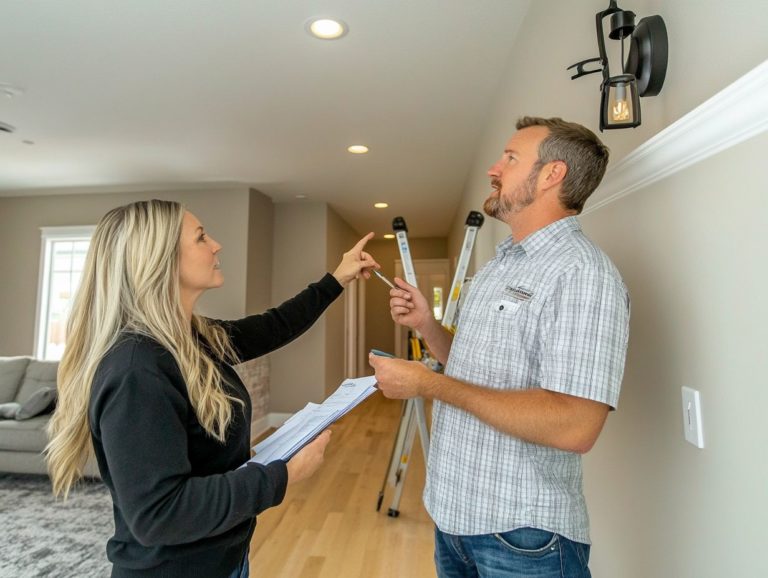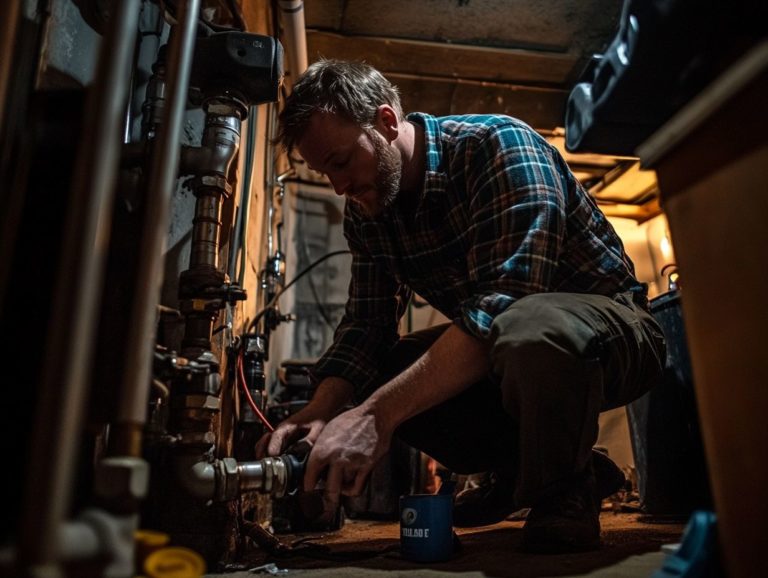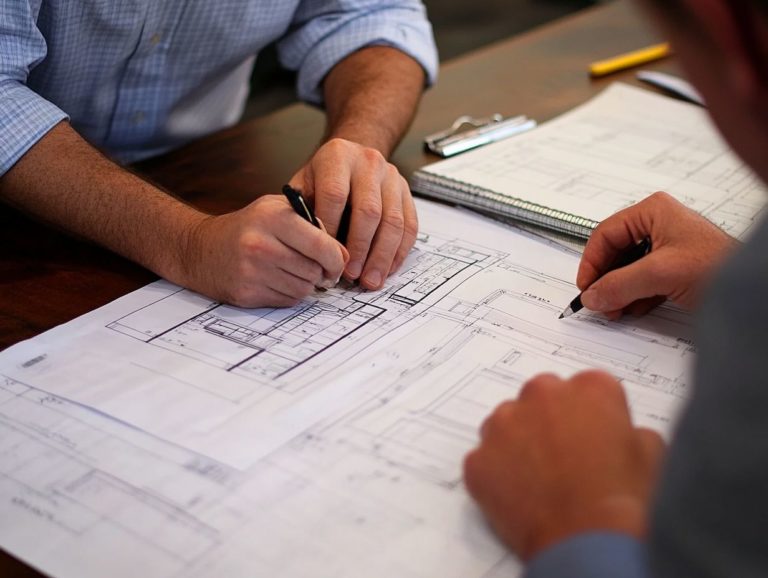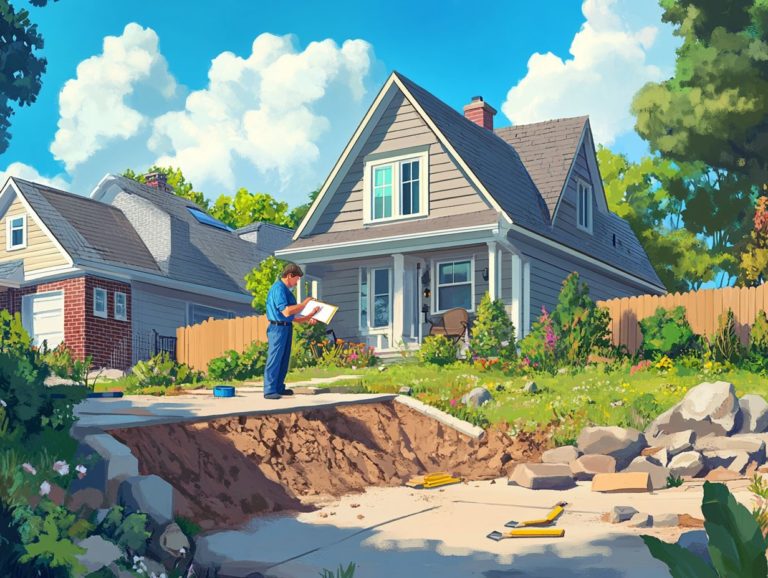How to Choose the Right Inspector for Your Needs
When you’re in the market for a home, grasping its condition is absolutely critical, and that’s precisely where a home inspector steps in.
These professionals are essential in pinpointing potential issues that could affect your investment. This guide will delve into the key responsibilities of a home inspector and the vital factors to weigh when selecting one.
You ll discover insightful questions to pose to prospective inspectors and valuable tips for researching and comparing your options. Whether you re a first-time buyer or preparing to sell, understanding how to choose the right inspector can significantly impact your real estate journey.
Contents
Key Takeaways:
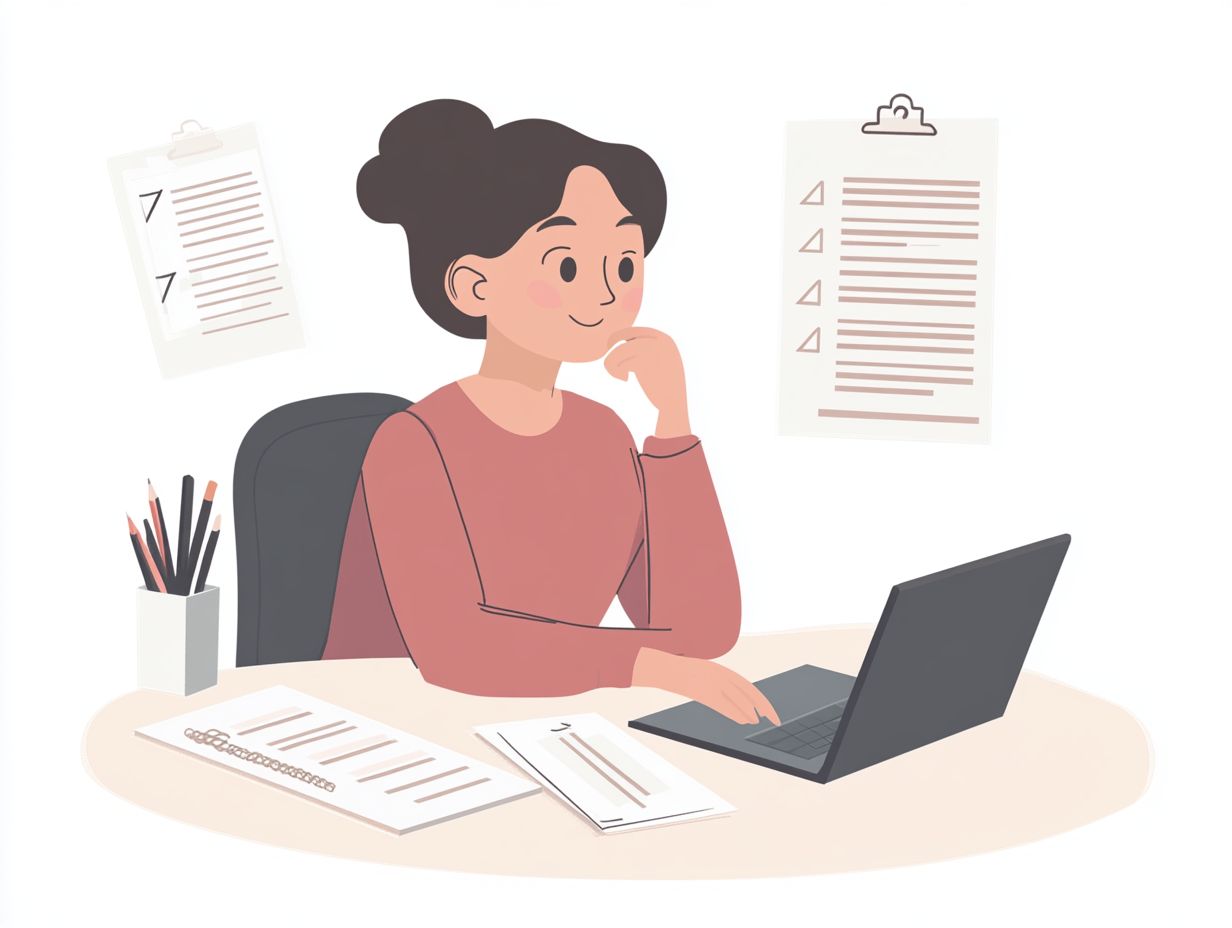
Consider the qualifications, experience, availability, and cost when choosing a home inspector. Additionally, when buying a home, it’s important to also think about how to choose the right real estate agent for you. Ask for references, sample reports, and recommendations to research and compare potential home inspectors. Understand the role of a home inspector and clarify their process and services before making a decision.
Understanding the Role of a Home Inspector
Understanding the role of a home inspector is essential for anyone navigating the real estate market, whether you re buying or selling a home.
A home inspector offers invaluable services to assess the condition of a property, empowering both buyers and sellers to make informed choices. They conduct detailed inspections of structural issues, electrical systems, HVAC systems, plumbing, and foundation evaluations, all while adhering to the latest building codes.
The significance of hiring a licensed inspector cannot be overstated. Their specialized training equips them to provide objective reports and detailed recommendations that not only protect homeowners but also facilitate smoother transactions.
What Does a Home Inspector Do?
A home inspector conducts a thorough evaluation of a property to pinpoint any potential issues before a sale, delivering an objective report that outlines necessary repairs and recommendations.
This comprehensive assessment often includes specialized services like mold inspections and radon testing, which are vital for revealing hidden problems that could threaten the health and safety of future occupants.
Mold can quietly flourish in places like basements or behind walls, leading to significant health risks. Radon, a harmful gas, can sneak into houses without being noticed, posing a serious lung cancer threat.
By incorporating these essential evaluations, the inspector provides you with the critical knowledge needed to make informed decisions, ultimately boosting your confidence in the home purchasing journey.
Factors to Consider When Choosing a Home Inspector
When you’re choosing a home inspector, it’s crucial to weigh several factors to guarantee you receive top-notch service and a trustworthy evaluation of the property. For guidance, check out this article on how to find a qualified home inspector.
Begin by looking into the inspector’s qualifications, checking their certifications and any specialized training they have. Additionally, when selling your home, it’s wise to research how to choose the right real estate agent to ensure a smooth process. Don’t forget to consider their availability and the costs associated with the inspection services.
Diving into customer reviews and asking for references can also shed light on the inspector s communication skills and thoroughness. This approach will empower you to make a more informed decision, whether you re buying or selling a home.
Qualifications and Certifications
The qualifications and certifications of a home inspector serve as vital indicators of their expertise and reliability in assessing a property’s condition.
You need to ensure that the inspector you choose is qualified and reliable. It’s essential for these professionals to be members of reputable organizations like the American Society of Home Inspectors (ASHI) or the International Association of Certified Home Inspectors (InterNACHI).
Being part of such associations signals a strong commitment to high standards and ethical practices within the industry. Ongoing education keeps inspectors informed about current building codes and industry advancements.
Regular training and certification updates not only enrich their knowledge but also boost your confidence, reassuring you that your inspector stays on top of the latest trends and regulations impacting property assessments.
Experience and Specialties

The experience and specialties of a home inspector play a crucial role in shaping the quality of your home inspection. Their insights will be reflected in the final report.
When you enlist a seasoned inspector, you benefit from their keen eye for spotting common repairs and potential structural issues. These details might escape those with less experience.
Specialized training for various property types equips inspectors with the knowledge necessary for a thorough examination. This education helps them spot unique concerns related to different architectural styles or building materials.
Your property evaluation will rely heavily on this expertise. This leads to more accurate assessments and greater peace of mind as a prospective buyer.
Availability and Scheduling
The availability and scheduling of a home inspector can significantly impact your home buying or selling timeline. Start your search early to secure an inspector who fits your timeline!
Understand that existing commitments, the volume of inspections in your area, and seasonal demand may influence their availability. Promptly scheduling inspections is crucial to avoid missing opportunities.
When you first contact an inspector, ask for a list of potential time slots. Staying flexible can help speed up the process.
Keep communication open with your agent and the inspector to facilitate smooth scheduling.
Cost and Fees
Understanding the costs of home inspection services is vital for proper budgeting, whether you’re buying or selling. This knowledge is essential for navigating the real estate process.
Several factors influence inspection costs. The size of the property is key; larger homes typically incur higher fees due to the increased time involved.
Location also plays a role in pricing. Urban areas often have different rates compared to suburban counterparts.
You can also choose to pay for extra tests, like radon or mold inspections. Weigh these costs against potential savings to make informed decisions.
Grasping the financial implications helps you navigate the real estate landscape wisely.
Questions to Ask a Potential Home Inspector
Asking the right questions during an interview with a potential home inspector empowers you to make informed decisions. This ensures you receive a detailed report on the property’s condition, safeguarding your investment.
Clarifying Their Process and Services
It’s essential to clarify the specific process and services offered by a home inspector. Knowing what to expect during the inspection is crucial.
The inspection usually begins with checking important parts of the house, like heating, plumbing, and electrical systems. These are vital for overall functionality and safety.
Expect checks for structural issues and any visible signs of wear. Don t overlook pest infestation checks; they can lead to serious damage if not addressed.
After the evaluation, you ll receive an objective report that highlights the findings. This document is your key to understanding your property s condition!
Researching and Comparing Home Inspectors

Researching and comparing home inspectors is essential in the home buying or selling process. Knowing how to spot a good home inspector ensures that you select a qualified professional who aligns perfectly with your specific needs.
Utilizing Online Resources and Reviews
Utilizing online resources and customer reviews is your best tool in finding a trustworthy home inspector. In today s digital landscape, explore a variety of platforms like Angie s List, HomeAdvisor, and Yelp to compare local home inspectors.
Dive into forums dedicated to real estate discussions; personal experiences and insights can be incredibly valuable. As you evaluate reviews and ratings, pay attention to recurring themes, particularly around responsiveness, thoroughness, and professionalism.
High ratings on popular sites often indicate reliability, while critical feedback may reveal potential red flags. Understanding these nuances gives you the power to make informed decisions, ensuring that your home inspection is comprehensive and tailored to meet your specific needs.
Asking for Recommendations
Asking for recommendations from trusted sources, like real estate agents or past clients, can lead you to a qualified home inspector tailored to your needs. For more guidance, check out this resource on how to find reliable home inspection services. Real estate agents bring a wealth of experience and valuable insights, having collaborated with numerous home inspectors over the years.
Their recommendations stem from first-hand experiences, allowing you to streamline the often daunting process of selecting the right professional. Engaging in discussions about the strengths and weaknesses of inspectors from the perspective of previous clients offers critical information that can influence your home-buying experience, especially when you learn how to compare home inspection services.
These conversations often uncover an inspector’s attention to detail, communication skills, and reliability, equipping you with the knowledge necessary to make informed and confident decisions.
Frequently Asked Questions
What should I look for in a home inspector?
When choosing the right inspector for your needs, look for someone who is licensed and certified. They should have experience in the type of property you are purchasing and a good reputation. For guidance, check out how to choose the right inspector for your property. Ensure the inspector has the necessary equipment and tools to thoroughly inspect the property.
How do I know if an inspector is trustworthy?

One way to determine if an inspector is trustworthy is to ask for references from previous clients. You can also check online reviews and ratings on reputable websites, such as the Better Business Bureau. Additionally, ask friends and family for recommendations.
Is price the most important factor when choosing an inspector?
While price is certainly a factor to consider, it should not be the most important one. Choose an inspector who is knowledgeable and thorough, even if they may be slightly more expensive. A cheap inspection may cost you more in the long run if significant issues are missed.
What type of insurance should an inspector have?
An inspector should have both general liability insurance, which covers general accidents, and errors and omissions insurance, which protects against mistakes made during the inspection. This will protect you if the inspector misses something or causes damage to the property.
Can I attend the inspection?
Yes, it is recommended that you attend the inspection. This allows you to see first-hand any issues the inspector may find and ask questions. It is also a good opportunity to learn more about the property and how to maintain it properly.
What happens if the inspector finds issues?
If the inspector finds issues, you can negotiate with the seller to have them fixed before closing or adjust the purchase price accordingly. You can also choose to walk away from the deal if the issues are too extensive. Discuss your options with your real estate agent and inspector before making a decision.

